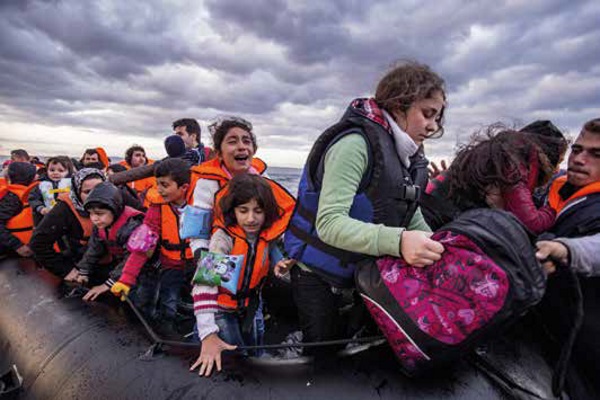Gerry Callaghan reviews the state of flux in the migrant problem.
The EU-Turkey deal has been in force for just over a year now, and the pact’s ambition of stemming the flow of migrants into Europe does seem to be working. However, EU-Turkey relations have soured in recent months and the Turkish President, Recep Tayyip Erdogan, has threatened to withdraw Ankara from it. Therefore, the EU must find another way to deal with the crisis, and should not be threatened by an increasingly dictatorial leader.
In the year before 20 March 2016, over a million desperate people crossed the straits between Turkey and Greece’s eastern Aegean islands. Hundreds of lives were lost as their boats capsized. About half of those who made it landed on the island of Lesbos. Since then, after the implementation of the deal, only around 25,000 people have arrived, fewer than an average week at the peak of the crisis in late 2015.
On its anniversary, European leaders met in Brussels and, shunning their international obligations, agreed that every person arriving irregularly on the Greek islands, including asylum seekers, should be returned to Turkey. In exchange, Turkey would receive €6bn to assist the growing refugee community in the country, Turkish nationals would be granted visa-free travel in Europe and, after the number of irregular migrants dropped, a voluntary humanitarian scheme to transfer Syrians from Turkey to other European countries would begin.
However, one year later, the agreement appears at risk amid deteriorating EU-Turkish relations. The Turkish president threatened to scrap the deal amid a standoff with European nations over their reluctance to allow Turkish ministers to hold campaign rallies in their countries. Erdogan is furious that Germany and the Netherlands stopped his ministers from campaigning in their Turkish immigrant communities. He said in March that the EU could “forget about” the deal, stepping up similar threats made in recent months.
Meanwhile, Chancellor Angela Merkel’s office said the German leader discussed the tensions between EU nations and Turkey with French President Francois Hollande. The two reiterated that Erdogan’s insulting comments about Germany and other European countries were not acceptable, including his “Nazi” comparisons. Despite Erdogan’s’ rhetoric, the two leaders agreed that appearances by Turkish politicians in Germany and France can be approved but only if they are “registered in good time and transparently, and adhere strictly to German or French law”.
EU migration commissioner Dimitris Avramopoulos, a Greek, hopes Ankara will not go beyond rhetoric. “It is imperative that the agreements continue to be implemented – and to remove any link with the recent spat between Turkey and various European countries,” Avramopoulos told Skai TV, a Greek private broadcaster.






